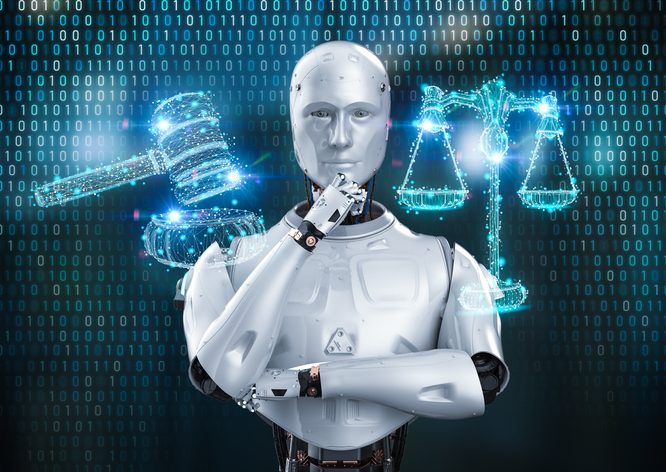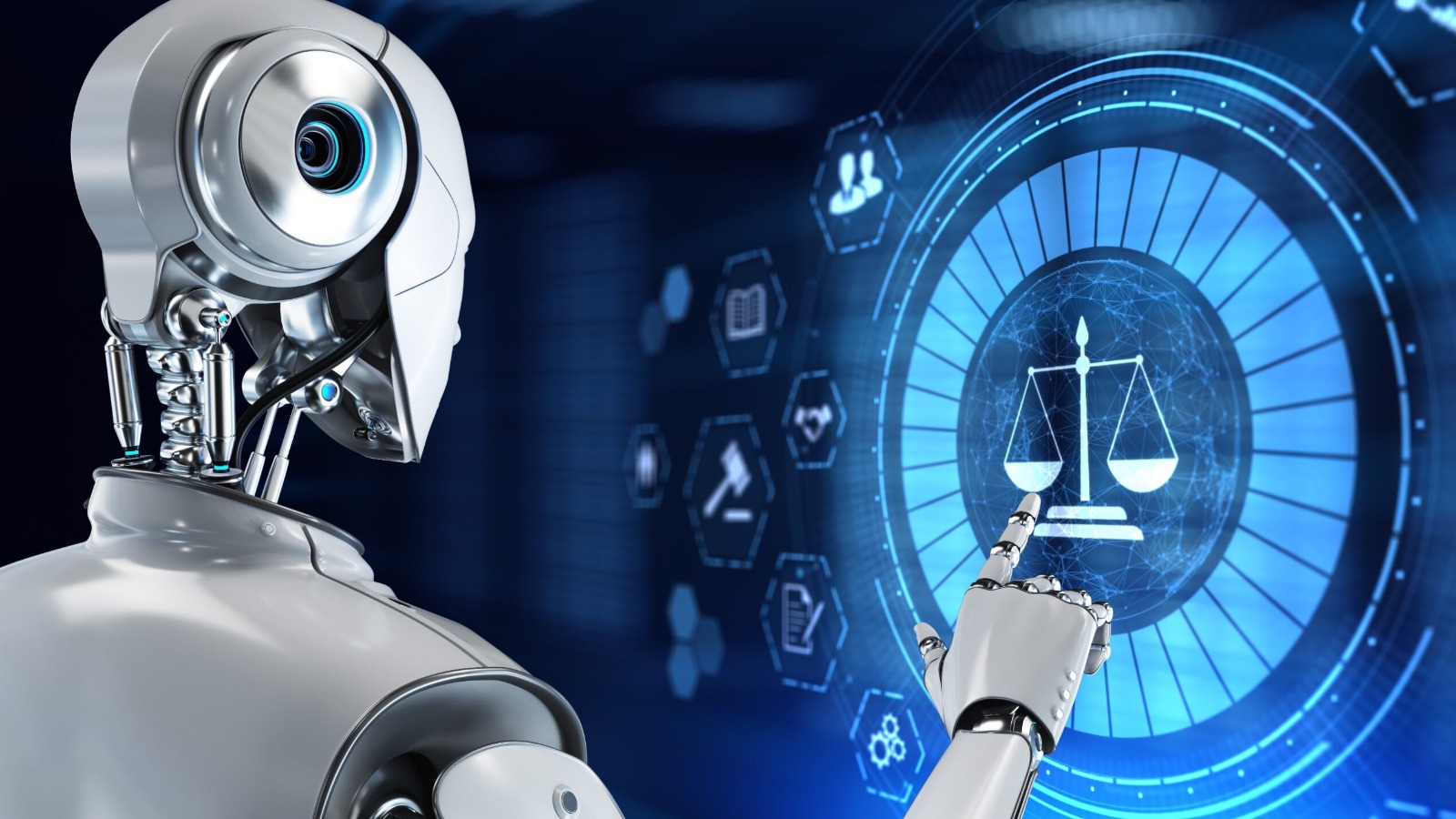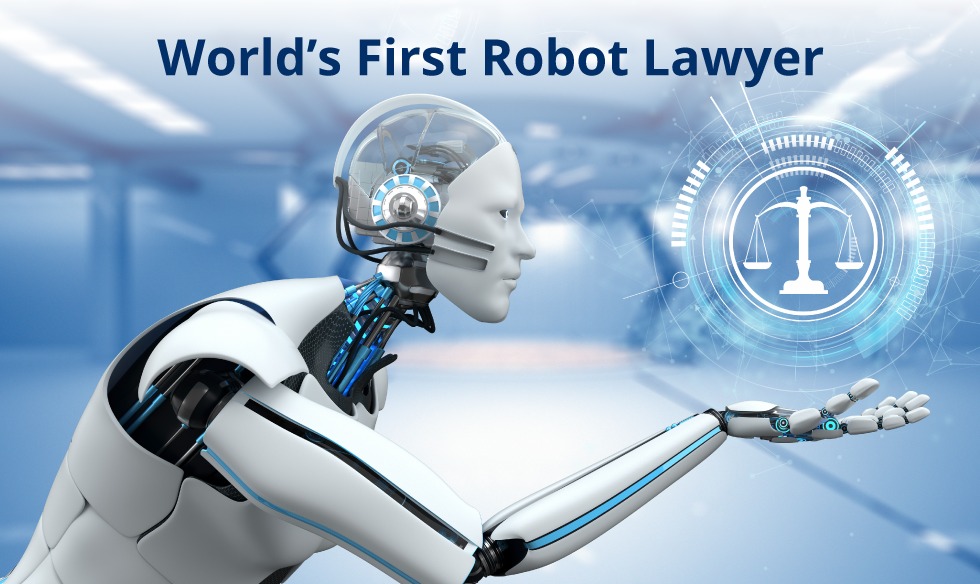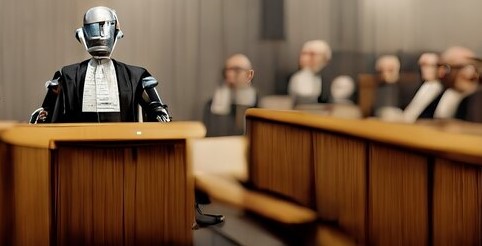
The new generation of AI is likely to make many things possible that we previously regarded as impossible
Bukhari Zulfiqar Shah
The new generation of AI is likely to make many things possible that we previously regarded as impossible. As Napoleon Bonaparte once said, “Impossible is a word to be found only in the dictionary of fools.”
According to the conventional wisdom, regular labor in offices and factories, such as bookkeeping or running simple machinery, is most susceptible to automation. But so-called natural language processing, an AI capability that can read and interpret text or voice, is displacing experts’ jobs. For instance, a significant amount of legal labor is routine. However, language has shielded lawyers from the consequences of automation in this everyday labor of searching through papers for pertinent information, but not anymore.
 The legal sector is increasingly adopting artificial intelligence (AI) for many purposes. The use of AI across the legal sector, but especially by in-house lawyers, is poised to usher in a revolution in the legal profession. Similar to how email revolutionized business as usual, AI will spread like wildfire and become every lawyer’s necessary helper. But what role will AI play in the legal sector in the future? A more important concern is if artificial intelligence will really replace lawyers as implied above. And if so, are there any moral or ethical quandaries that should be taken into account when it comes to AI and the legal sector? Several things may be said about the industry’s use of AI in the future: First, those who resist the change and do not accept it will be left behind in some way. Secondly, those who do use AI will find themselves eventually freed up to do the two things for which there is always too little time: thinking and advising. The second essay in a four-part series on artificial intelligence (AI) examines whether or not lawyers need to be concerned about being replaced by the technology.
The legal sector is increasingly adopting artificial intelligence (AI) for many purposes. The use of AI across the legal sector, but especially by in-house lawyers, is poised to usher in a revolution in the legal profession. Similar to how email revolutionized business as usual, AI will spread like wildfire and become every lawyer’s necessary helper. But what role will AI play in the legal sector in the future? A more important concern is if artificial intelligence will really replace lawyers as implied above. And if so, are there any moral or ethical quandaries that should be taken into account when it comes to AI and the legal sector? Several things may be said about the industry’s use of AI in the future: First, those who resist the change and do not accept it will be left behind in some way. Secondly, those who do use AI will find themselves eventually freed up to do the two things for which there is always too little time: thinking and advising. The second essay in a four-part series on artificial intelligence (AI) examines whether or not lawyers need to be concerned about being replaced by the technology.
Certain aspects of a lawyer’s profession, such document inspection, legal research, and contract analysis, could one day be replaced by AI. It added its view that “it is unlikely that AI will completely replace the role of lawyers as the legal profession requires a high degree of critical thinking, problem-solving, and decision-making skills that are currently difficult for AI to replicate,” maybe in an effort to make us feel better. it is more likely that AI will become a tool that lawyers use to augment their abilities, rather than a replacement for lawyers altogether.
 However, AI is not yet ready to replace human judgment in the legal profession. The risk of embedded bias in data that fuels AI and the inability to adequately understand the rationale behind AI-derived decisions in a way understandable to humans (i.e., explainability) must be overcome before using the technology in some legal contexts.
However, AI is not yet ready to replace human judgment in the legal profession. The risk of embedded bias in data that fuels AI and the inability to adequately understand the rationale behind AI-derived decisions in a way understandable to humans (i.e., explainability) must be overcome before using the technology in some legal contexts.
Researching the law is another area where AI is already widely employed in legal practice
The inevitable evolution of artificial intelligence means that lawyers will need to keep up with the latest developments and learn how to use AI to their advantage.
Lawyers can use AI in practice as it can free up time to focus on other, more human-centric tasks, such as client meetings and trial preparation. It can assist in legal research by quickly searching through large amounts of data to find relevant information. This can save lawyers time through more efficient research. AI also can be used to create legal documents such as contracts and pleadings. This can be helpful for lawyers who do not have the time to draft these documents themselves. Standard administrative tasks such as scheduling appointments and managing law firm finances can be time-consuming and can prevent lawyers from focusing on more important tasks in their practice.
Researching the law is another area where AI is already widely employed in legal practice. Since AI has been effortlessly incorporated into many research services, practicing lawyers might not even be aware that they are using it in this field. Westlaw Edge is one such service that was introduced by Thomson Reuters more than three years ago. Semantic search has been added to the keyword or boolean search strategy that was the service’s defining feature for decades. This indicates that rather than just matching words to keywords, the machine learning algorithms are attempting to comprehend the meaning of the phrases. Quick Check, another AI-powered function from Westlaw Edge, analyzes a draft argument to uncover new information or locate pertinent authority that may have been overlooked. Even cases that have been indirectly reversed can be found with Quick Check.
AI’s usage in advising courts on bail and sentencing decisions is more worrisome
Predicting legal outcomes is another innovative application of AI. Understanding the chances of a case succeeding might be quite beneficial. It enables a lawyer to make decisions regarding taking a case on contingency, the amount to spend on experts, and whether to advise their clients to settle. Businesses like Lex Machina employ machine learning and predictive analytics to make predictions about the behaviors and outcomes of judges, lawyers, and the case itself.
AI’s usage in advising courts on bail and sentencing decisions is more worrisome. Correctional Offender Management Profiling for Alternative Sanctions (COMPAS) is one such application. Criminal courts in numerous states employ COMPAS and similar AI techniques to determine whether to sentence, detain, or release a defendant early based on the likelihood that they will reoffend. The fairness or accuracy of these methods are hotly contested topics. A ProPublica research found that these assessment systems appeared to be biased against black inmates, classifying them as being markedly more likely to commit crimes again than white inmates. The business that created COMPAS, Equivant, attempted to disprove the ProPublica investigation and dismissed its findings regarding racial bias.
Smartphones can be used in China to lodge complaints, monitor the status of cases, and get in touch with judges. In so-called “one-stop” stations, AI-based automated devices are available around-the-clock to register cases, generate legal papers, and provide legal consultations. Even legal fees can be calculated by them. However, the accuracy of the data produced by these automated lawyers is up for question. According to reports, the robots take into account the financial, emotional, and time costs associated with situations and give customers calculated information on prognosticating outcomes.
In December 2019, China has announced that millions of legal cases are now being decided by “Internet courts” that do not require citizens to appear in court. The “smart court” includes non-human judges, powered by artificial intelligence (AI) and allows participants to register their cases online and resolve their matters via a digital court hearing. China’s first Internet court was established in the eastern city of Hangzhou in 2017 and in 2019, it was reported that users completed more than 3.1 million legal activities using the court system from March through to October. More than one million citizens were registered with the system, along with approximately 73,000 lawyers.
 Since 2014, UNESCO and its partners have been training judges and judicial actors on freedom of expression, public access to information and safety of journalists, mainly through Massive Open Online Courses (MOOC). More than 17,000 judicial actors have been trained in Latin America, in partnership with the Inter-American Court of Human Rights, as well as in Africa, where UNESCO has partnered with the Center for Human Rights of the University of Pretoria, the African Commission on Human and Peoples’ Rights, the African Court on Human and Peoples’ Rights and the Economic Community of West African States. Considering rapid developments in this field, the challenges and opportunities related to harnessing AI in judicial systems and their implications for human rights and the rule of law must form part of discussions among stakeholders from the judicial ecosystem. The online training course in the form of a Massive Online Open Course (MOOC) is being developed in cooperation with UNESCO’s category 2 center CETIC and the IEEE in response to the needs expressed by UNESCO Member States, judges and other stakeholders. The (MOOC) on AI and the Rule of Law is an introductory course engaging judicial operators in a global and timely discussion around AI’s application and impact on the rule of law.
Since 2014, UNESCO and its partners have been training judges and judicial actors on freedom of expression, public access to information and safety of journalists, mainly through Massive Open Online Courses (MOOC). More than 17,000 judicial actors have been trained in Latin America, in partnership with the Inter-American Court of Human Rights, as well as in Africa, where UNESCO has partnered with the Center for Human Rights of the University of Pretoria, the African Commission on Human and Peoples’ Rights, the African Court on Human and Peoples’ Rights and the Economic Community of West African States. Considering rapid developments in this field, the challenges and opportunities related to harnessing AI in judicial systems and their implications for human rights and the rule of law must form part of discussions among stakeholders from the judicial ecosystem. The online training course in the form of a Massive Online Open Course (MOOC) is being developed in cooperation with UNESCO’s category 2 center CETIC and the IEEE in response to the needs expressed by UNESCO Member States, judges and other stakeholders. The (MOOC) on AI and the Rule of Law is an introductory course engaging judicial operators in a global and timely discussion around AI’s application and impact on the rule of law.
In short, AI continues to evolve, lawyers must keep up with the latest developments to ensure they use it to the fullest of their abilities. They should be committed to learning about new AI applications and how they can be used in their practice. AI is already changing the legal profession, and it is almost certain to have a big impact in the future. Lawyers should stay up to date on AI developments, learn how to use AI applications in their practice, and always be ready to adapt to the evolution of this helpful tech. As a way to make the process of law faster and more free from errors or omissions, AI is a welcome tool in the cause of justice. AI may be a more efficient way to resolve civil cases, while at the same time increasing predictability without creating a moral hazard. When AI is utilized in place of human judgment, particularly in the context of criminal law, it becomes increasingly problematic. For a variety of reasons, AI is not prepared for this. One is that there might be bias in the training data, which the resulting machine learning (ML) models will amplify and further institutionalize. We might be able to solve this issue; in fact, eliminating bias from our training data may help us recognize and address some of the inherent sexism and racism in our judicial system.
__________________
About the Author
 Bukhari Zulfiqar Shah, hailing from Khairpur Mirs, an advocate of Sindh High Court, is currently doing Ph.D. in International Environmental Law from Xian Jiaotong University, China. He did B. Commerce, LLB, MA Journalism, and MA Sociology from Shah Abdul Latif University Khairpur, and did LLM from Zhejiang University, China. He served more than 15 years in development sector at deferent levels along with banking and government sectors in Pakistan. Email: advbukhari@gmail.com
Bukhari Zulfiqar Shah, hailing from Khairpur Mirs, an advocate of Sindh High Court, is currently doing Ph.D. in International Environmental Law from Xian Jiaotong University, China. He did B. Commerce, LLB, MA Journalism, and MA Sociology from Shah Abdul Latif University Khairpur, and did LLM from Zhejiang University, China. He served more than 15 years in development sector at deferent levels along with banking and government sectors in Pakistan. Email: advbukhari@gmail.com
[…] Also read: The World of Artificial Intelligence and the Future of Lawyers […]